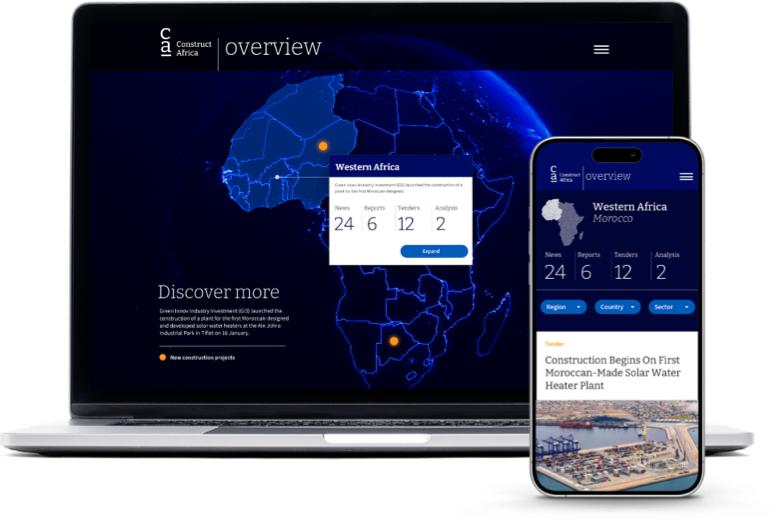Nigerian Builders Council Moves To Improve Professional Standards
FreePartnership with Chartered Institute of Building to elevate construction sector.

The Council of Registered Builders of Nigeria (CORBON) and the Chartered Institute of Building (CIOB) have signed a memorandum of understanding (MoU) that will see them collaborate to raise professional standards and promote sustainable practices in Nigeria’s built environment.
While CORBON plays a pivotal role in licensing and regulating construction professionals in Nigeria, the UK-based CIOB is widely reputed as the world’s largest and most influential professional body for construction management and leadership.
Their partnership will combine CORBON’s understanding of the country’s building regulations and development needs with CIOB’s expertise and network of knowledge and training resources.
The collaboration comes at an opportune time for Nigeria’s buildings sector, which is on an upward trajectory with a significant focus on infrastructural development, according to CORBON Registrar Tunji Adeniran.
Andrew Abiona, a CIOB member in Nigeria, says the country is experiencing significant growth in cities such as Lagos, Abuja and Port Harcourt, with rapid urbanisation increasing the demand for homes, offices and factories.
“The World Bank notes we're urbanising at about 4.3% each year and government programmes such as the National Housing Programme, along with partnerships between public and private sectors, are helping push things along,” he says.
The rapid growth has its drawbacks, however. “We have a real lack of good infrastructure and high building costs because a lot of materials have to be imported,” says Abiona.
“There's also a shortage of skilled workers and we’ve seen building codes being ignored, which has led to … serious incidents in the past. To address these issues, the MoU between CIOB and CORBON will enhance our working together to promote professionalism, enforce rules and provide training in the industry, helping to improve safety and efficiency.”
The sector also has weak points in legislation, according to CORBON’s Adeniran, who opines that while the legal framework for ensuring professional standards across processes, materials and practitioners is fairly well-established, the institutions that enforce these standards are “poorly resourced”.
“To address the weak capacity, [several] sub-national governments have set up arrangements to engage professionals outside the public service – in some [form of] PPP model – to further expand capacity for the entrenching of requisite standards,” he says.
Abiona notes that there are indeed significant roadblocks, including inefficiencies in the permit process, the use of low-quality materials and the lack of enforcement of rules.
“The CIOB and CORBON will push hard to tackle these problems by improving certification processes, expanding training options and asking for stricter adherence to standards,” he says. “If we can tackle these issues head-on, we can boost the quality and reputation of Nigeria’s building industry.”
On a positive note, Abiona says the buildings sector is starting to see more investments coming into affordable housing, thanks to government support and private sector interest.
“New technologies like building information modelling (BIM) and eco-friendly materials are becoming more common, which should help boost the quality of construction,” he says. “The CIOB and CORBON partnership also aims to strengthen regulations and provide more development opportunities for professionals, ensuring builders follow international standards.”
Adeniran says sustainability in construction is slowly but surely becoming a buzzword in the Nigerian industry.
“Conversations on sustainable construction are being held among professionals in the built environment and the implementation/execution of such projects is at very early stages,” he says.
“It is worthy of note, though, that there are associations and bodies in the industry and civil society space that are spearheading conversations towards entrenching sustainability in construction. Significantly, educational institutions responsible for training professionals are embedding the concept to deepen understanding and ensure wider adoption.”
The CIOB-CORBON partnership will also unlock opportunities for training, mentorship and networking for Nigeria’s students and mid-career professionals, who stand to gain a “truly global platform to engage with the best in the built environment sector, share knowledge, and raise professional standards across borders”, according to Chukwudi Ononogbu, a CIOB member from Nigeria.
“For companies, institutions and universities, this is a meaningful opportunity to connect through capacity building, research and a shared vision of what good looks like,” he says.
Photo: Construction site (© Muhammad Hadyan Baqi | Dreamstime.com)
Discover
myConstructAfrica
Your one-stop-shop for information and actionable intelligence on the construction and infrastructure pipeline in African countries
- News, analysis and commentary to keep up-to-date with the construction landscape in Africa.
- Industry Reports providing strategic competitive intelligence on construction markets in African countries for analysts and decision-makers.
- Pipeline Platform tracking construction and infrastructure project opportunities across Africa from conception to completion.
- Access to contact details of developers, contractors, and consultants on construction projects in Africa.
- News and analysis on construction in Africa.
- Industry Reports on construction markets in African countries.
- Pipeline platform tracking construction and infrastructure projects in Africa.
- Access to contact details on construction projects in Africa.


